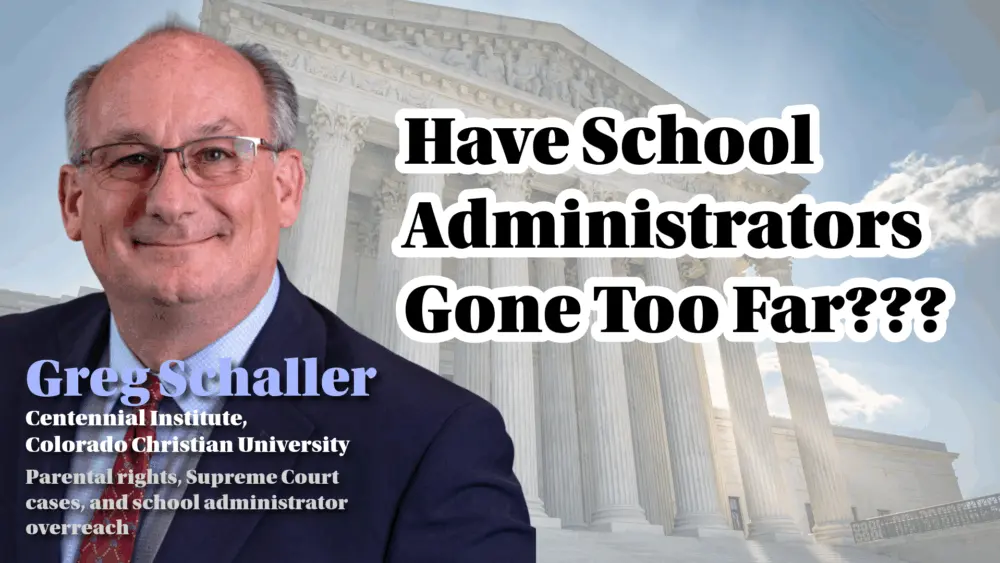Parental Rights at the Supreme Court: Why These Cases Matter for Every Family
By Travis Pander (Crawford Media Group) · Conversation with Greg Schaller, Director of the Centennial Institute · August 28, 2025
Who makes the final call in raising a child—parents or the state? That’s the question at the center of Foote v. Ludlow and Lee v. Poudre School District, two cases advocates are urging the U.S. Supreme Court to hear.
In a recent conversation, Colorado Christian University’s Centennial Institute director, Greg Schaller, traced a long line of court decisions that place primary responsibility for children with parents—not bureaucracies. From West Virginia v. Barnette (1943) to Wisconsin v. Yoder (1972) and most recently Mahmoud v. Taylor, the through-line is simple: the state doesn’t get to override a family’s convictions on how their children are raised and taught.
What’s Happening in These Cases
Lee v. Poudre (CO):District staff affirmed a student’s gender transition at school while keeping parents in the dark—using one identity on campus and another at home.
Foote v. Ludlow (MA):Parents, already addressing their daughter’s depression and gender distress with private counseling, asked the school to refrain. Officials encouraged transition anyway.
Despite decades of precedent supporting parental authority, both sets of parents lost in lower courts. That’s why organizations—including the Centennial Institute—have urged the Supreme Court to step in and clarify the limits of school authority.
Why Some Schools Keep Pushing the Line
Schaller points to a mix of hubris and ideology: local actors who believe they know better than parents, and a worldview that treats sex and gender as fluid. Whatever one’s philosophy, courts have repeatedly held that parents—not administrators—get the final say in how their children are formed, especially on contested moral questions.
Your Next Steps: Get Informed, Stay Engaged, Remain Vigilant
Practical steps for families and churches
- 📖 Get informed: Ask to see curriculum. Know your district’s policies. After Mahmoud v. Taylor, parents can be notified of sensitive content and opt out where applicable. Have conversations with your kids about the issues, and why it’s detrimental to them; they’ll understand more than you think!
- 💪🏼 Get engaged: Show up at school board, city council, and township meetings. Policy is shaped by whoever’s in the room.
- 🚨 Stay vigilant: Cultural shifts happen fast. If Colorado and Massachusetts can change, any state can. Keep an eye on what’s coming to your district.
The Bigger Picture
These cases aren’t just legal skirmishes; they’re about the basic ordering of family and state. Will the Court reaffirm that parents are the primary stewards of their children’s upbringing—or leave more room for schools to substitute their judgment?
Quick Reference: Landmark Parental Rights Cases
- West Virginia v. Barnette (1943): No forced pledge against family’s religious convictions.
- Wisconsin v. Yoder (1972): Amish parents permitted to end formal schooling after eighth grade.
- Mahmoud v. Taylor (recent term): Parents can be informed about controversial instruction and may opt out.











